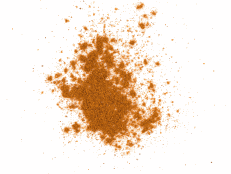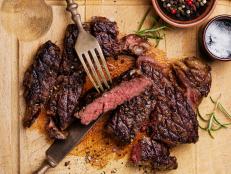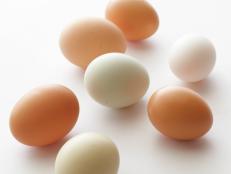Eating for Digestive Issues
A nutritionist shares tips for eating with digestive issues like bloating, IBS and lactose intolerance.

elenaleonova
Many are plague by a variety of digestive issues. It can take time and frustration to navigate through the foods that work and don’t work for you. Take the guess work out of eating by choosing the right foods for your condition. Below are 3 common digestive issues, and how you can better eat to manage symptoms.
Lactose Intolerance
Lactose intolerance is when the body takes in more dairy and dairy foods that it can handle at one time. This results in uncomfortable intestinal symptoms like bloating, gas, abdominal pain, and diarrhea, as the undigested milk sugar makes its way down the intestinal tract. Many folks self-diagnose lactose intolerance, but you should get tested to make sure there isn’t any other medical issue going on.
Those who do have lactose intolerance tend to eliminate dairy from their diet, which means cutting out healthy and delicious foods. Both the National Institute of Health and National Medical Association recommend that folks with lactose intolerance take in 3 daily servings of dairy each day. There are a few tips to do so with minimal symptoms:
• Know what dairy works for you: Dairy foods have varying amounts of lactose. One cup of milk has 12 grams of lactose, which studies find many folks with lactose intolerance can build up to. However, you can also try lower lactose foods like cheese, Greek yogurt, or cottage cheese.
• Consume dairy with other foods: When dairy foods are combined with other foods (like in a smoothie) the body has more time to work on breaking down the milk sugar, lactose.
• Try fermented dairy: Tradition yogurt, Greek yogurt, and kefir have live and active cultures which help break down lactose for you.
• Try lactose-free milk: Lactose free milk is made from cow’s milk and provides the same 9 essential nutrients as regular cow’s milk. It is pre-digested for you so your body doesn’t have to do the work.
Bloating
You’ve had that feeling of fullness where your tummy feels distended. Bloating can happen when the intestines don’t move properly while can trap gas produced by air swallowed and produced by the bacteria in the gut. Kate Scarlata, a registered dietitian, Gut Nutrition Expert, and author of The Low-FODMAP Diet Step by Step says you can help minimize bloating by doing the following:
• Eliminate or reduce gum chewing, which encourages swallowing air, which adds more gas into the gut.
• Reduce common foods that trigger bloating such as garlic, onion, wheat, apples, pears, and the additive chicory root extract, commonly found in granola and energy bars.
• Get moving as exercise can stimulate gut motility moving trapped gas and fluids more effectively throughout the intestine to minimize bloating.
Irritable Bowel Syndrome (IBS)
IBS is several symptoms that happen together, including repeated pain in the tummy and changes in bowel movement (such as diarrhea, constipation or both). The cause of IBS in unknown, however, Scarlata says that you can alleviate symptoms by “consuming adequate and tolerable fiber to help elimination patterns, while minimizing foods that are rapidly fermented by our gut microbes resulting in gas.” Gut microbes are particularly eager to consume poorly digested small sized carbs, so reducing foods rich in these sugars and small fibers can reduce bloating.
• Quinoa: provides a nice dose of gut-friendly fiber and protein, but is low in rapidly fermented carbs.
• White potato with skin: Unlike sweet potatoes which contain rapidly fermentable sugars, white potatoes is gentle for the sensitive belly prone to bloating
• Kiwifruit: this fruit is rich in digestive enzymes to aid digestion
• Salmon, and other protein-rich foods like chicken, turkey, and eggs: is naturally free of the poorly digested carbs that are linked with bloating.
• Chia seed: a gut-friendly fiber source that also provides calcium and magnesium.
Kate shared her recipe for a low-FODMAP soup that’s perfect for those with bloating and IBS.

Chicken and Rice Soup with Turmeric
Makes 4 servings
Ingredients
1 chicken breast (w/ skin and bones) – about 1.5 pounds
8 cups water
8 thyme sprigs (save a few sprigs for garnish)
1½ tablespoons turmeric (this is a hefty dose, feel free to start with 1-2 teaspoons and adjust to your taste)
1 large celery stalk with leaves, chopped
Salt and freshly ground pepper, to taste
1 1/2 cup thinly sliced carrot rounds
1 1/2 cups pre-COOKED brown rice
Instructions
1. Add chicken, water, 6 sprigs thyme, turmeric, celery, salt and pepper to medium stock pot over high heat.
2. Bring mixture to boil for about 20 minutes. Check chicken with meat thermometer for doneness, should register 165 degrees F. Shut off heat, cover pot, and let sit for one hour.
3. Remove chicken breast and shred meat off bone, throw out bones and skin and set meat aside.
4. Add carrots to broth, put heat back on high and boil for 5 minutes or until carrots are fork tender.
5. Add in chicken and cooked rice and reduce heat to simmer.
6. Skim out sprigs of thyme.
7. Pour soup in serving bowl and add fresh thyme as garnish.
Serves 4; Calories 229; Total Fat 3 grams; Saturated Fat 1 grams; Protein 25 grams; Total Carbohydrate 23 grams; Fiber 3 grams; Sugar: 3 grams; Cholesterol 72 milligrams; Sodium 250 milligrams
































